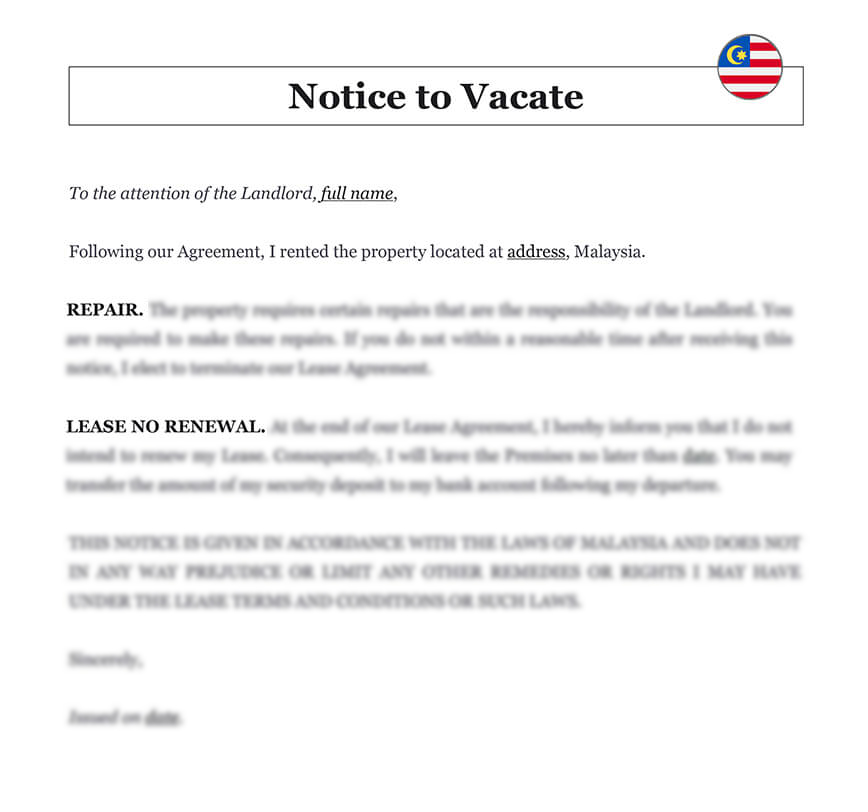Ready to use legal template
Drafted by experienced lawyers
Compliant with Malaysian law
Ready to use legal template
Drafted by lawyers
Compliant with Malaysian law
Home › Rent your property › Notice to vacate
Learn more about Notice to Vacate in Malaysia
The Notification to Vacate is a formal notice issued by the tenant to his landlord informing him of his decision to terminate the lease agreement for a variety of reasons. The tenant has the right to cancel your lease at any time. If the renter wishes to recover his security deposit, he must comply with the notice time and present a compelling cause for violating the contract. In the case of a default by the owner, Themis Partner provides you with a model of tenant breach of contract. Our legal team is also available to you to write a letter tailored to your situation, giving you the legal right to reclaim your deposit.
Table of contents
What is a Notice to Vacate?
A notice to vacate is a formal declaration sent to a landlord by a tenant informing them that they will be leaving their residence before the lease expires. A notice of intent to vacate is another name for a notice to vacate.
The letter of notice to vacate is delivered to provide your landlord adequate time to find a new tenant for the flat you’re leaving. The letter is typically distributed one to three months before your lease expires.
A notice to vacate can be given for any lease period, from month-to-month to regular one-year leases.
What is included in a Notice to Vacate Letter?
The Notice to Vacate typically includes the following provisions:
| ➤ Notification of termination decision |
| ➤ Termination date |
| ➤ The clause that forms the basis for termination |
| ➤ Take note of any efforts to replace the renter, if agreed upon |
| ➤ Acceptance or rejection of any financial penalty specified in the contract |
| ➤ Termination of tenancy terms and circumstances |
| ➤ Penalties, such as a failure to pay a security deposit, may be imposed |




